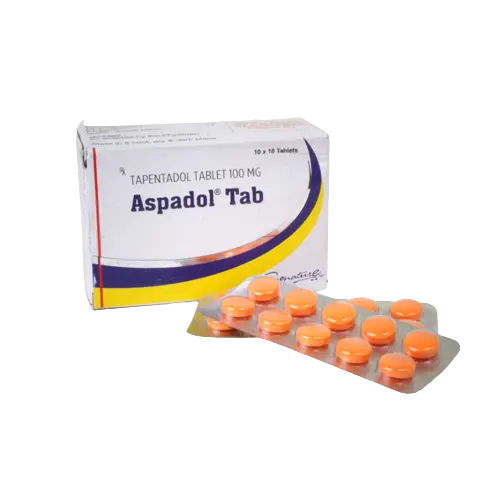Parasitic infections are a major public health concern worldwide, affecting millions of people each year. These infections are caused by various parasites, including protozoa, helminths, and ectoparasites, leading to conditions ranging from mild discomfort to severe health complications. One of the most commonly used medications to treat parasitic infections is Iverheal, which contains Ivermectin as its active ingredient.
Iverheal is an antiparasitic drug known for its broad-spectrum activity against various parasites, including intestinal worms, mites, and some external parasites. It has been widely used in both human and veterinary medicine due to its effectiveness and safety profile. This article explores the effectiveness, safety, and potential side effects of Iverheal in treating parasitic infections. Buy Iverheal 12 Online on DosePharmacy – An Effective Solution for Treating Parasitic Infections Safely.
Effectiveness of Iverheal in Treating Parasitic Infections
Iverheal (Ivermectin) is widely recognized for its potent action against various parasitic infections. Below are some of the common infections it is used to treat:
1. Intestinal Parasitic Infections
Strongyloidiasis: Strongyloides stercoralis, a parasitic nematode, causes this condition. Iverheal is highly effective in eliminating the parasite from the intestines, reducing the risk of complications such as hyperinfection syndrome.
Onchocerciasis (River Blindness): Ivermectin is a key treatment for this infection, caused by the Onchocerca volvulus worm. It helps reduce microfilariae in the bloodstream, preventing disease progression and blindness.
Ascariasis: Caused by Ascaris lumbricoides, this intestinal worm infection can be effectively treated with Iverheal, reducing symptoms such as abdominal pain and malnutrition.
2. Ectoparasitic Infections
Scabies: Scabies is a skin infestation caused by the Sarcoptes scabiei mite. Iverheal is a proven treatment, killing the mites and alleviating itching and skin irritation.
Head Lice: The medication is sometimes used as an alternative to topical treatments for head lice, particularly in resistant cases.
3. Other Parasitic Diseases
Filariasis: This disease, caused by Wuchereria bancrofti and Brugia malayi, can lead to elephantiasis. Iverheal helps eliminate microfilariae from the bloodstream.
Cutaneous Larva Migrans: Caused by hookworm larvae penetrating the skin, this condition can be effectively treated with Iverheal.
How Iverheal Works
Iverheal (Ivermectin) works by targeting the nervous system of parasites. It binds to glutamate-gated chloride channels in nerve and muscle cells of the parasite, leading to paralysis and death of the organism. Since human nerve cells do not have these receptors, Ivermectin does not affect the nervous system of humans, making it a safe and selective antiparasitic drug.
Additionally, Ivermectin helps to reduce the reproductive capacity of some parasites, preventing further infections and transmission.
Safety Profile of Iverheal
Iverheal is generally considered safe when used as prescribed. It has been used for decades in the treatment of parasitic infections with minimal adverse effects. However, certain precautions must be taken to ensure safe usage:
1. Dosage and Administration
The dosage of Iverheal varies depending on the type of infection being treated. It is usually administered as a single dose but may require follow-up doses for persistent infections.
For scabies and lice, repeated doses may be necessary after a few weeks to eliminate all parasites.
It is typically taken on an empty stomach with water to enhance absorption.
2. Who Should Avoid Iverheal?
Pregnant and breastfeeding women should consult a doctor before using Iverheal.
People with liver diseases should use it cautiously as the drug is metabolized in the liver.
Patients with neurological disorders should avoid Ivermectin unless prescribed by a doctor, as it may exacerbate symptoms.
Children weighing less than 15 kg (33 lbs) should not take Iverheal unless prescribed by a healthcare provider.
Click here More : Iverheal 6
Potential Side Effects of Iverheal
While Iverheal is well-tolerated, some individuals may experience side effects. The severity of these side effects depends on factors such as dosage, individual tolerance, and the presence of underlying conditions.
1. Common Side Effects
Nausea and vomiting
Diarrhea
Dizziness and lightheadedness
Fatigue and weakness
Mild skin rash or itching
2. Serious Side Effects
Neurological Effects: Some users have reported confusion, tremors, and seizures in rare cases.
Allergic Reactions: Swelling of the face, lips, or throat, along with difficulty breathing, may indicate an allergic reaction.
Severe Skin Reactions: In rare cases, Iverheal may cause peeling skin, blistering, or severe itching.
3. Herxheimer-like Reaction
When treating onchocerciasis or filariasis, some patients may experience a Herxheimer-like reaction, characterized by fever, headaches, muscle pain, and swelling. This is due to the sudden death of parasites, triggering an immune response.
Drug Interactions and Precautions
Iverheal may interact with certain medications, potentially leading to adverse effects. Some notable drug interactions include:
Blood thinners (Warfarin): Ivermectin may enhance the effects of blood-thinning medications, increasing the risk of bleeding.
Immunosuppressants (Cyclosporine): May alter the drug metabolism, leading to increased or decreased effectiveness.
Sedatives and Alcohol: Combining Iverheal with alcohol or sedatives can increase drowsiness and dizziness.
To avoid complications, always inform your healthcare provider about any medications or supplements you are taking before using Iverheal.
Conclusion
Iverheal (Ivermectin) is a widely used and effective medication for treating various parasitic infections, including strongyloidiasis, onchocerciasis, scabies, and filariasis. It works by paralyzing and killing parasites, making it a vital tool in controlling parasitic diseases worldwide.
Despite its effectiveness, users must adhere to the prescribed dosage and be aware of potential side effects. While most people tolerate the medication well, rare adverse reactions may occur. Pregnant women, individuals with liver conditions, and those taking certain medications should exercise caution when using Iverheal.
Overall, Iverheal remains an essential antiparasitic treatment, helping millions of people combat infections and improve their quality of life. Consulting a healthcare provider before starting treatment is always recommended to ensure safe and effective use.














Leave a Reply